| Listing 1 - 10 of 65 | << page >> |
Sort by
|
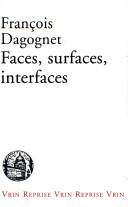
ISBN: 2711620409 9782711620401 Year: 1982 Publisher: [Paris]: Vrin,
Abstract | Keywords | Export | Availability | Bookmark
 Loading...
Loading...Choose an application
- Reference Manager
- EndNote
- RefWorks (Direct export to RefWorks)
CDL --- 7.01 --- Physiognomy --- Body, Human (Philosophy) --- Face (Philosophy)
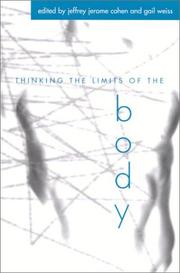
ISBN: 0791487474 1417520531 9781417520534 0791455998 9780791455999 0791456005 9780791456002 9780791487471 9780791487471 Year: 2003 Publisher: Albany : State University of New York Press,
Abstract | Keywords | Export | Availability | Bookmark
 Loading...
Loading...Choose an application
- Reference Manager
- EndNote
- RefWorks (Direct export to RefWorks)
This collection maps the very best efforts to think the body at its limits. Because the body encompasses communities (social and political bodies), territories (geographical bodies), and historical texts and ideas (a body of literature, a body of work), Cohen and Weiss seek trans-disciplinary points of resonance and divergence to examine how disciplinary metaphors materialize specific bodies, and where these bodies break down and/or refuse prescribed paths. Whereas postmodern theorizations of the body often neglect its corporeality in favor of its cultural construction, this book demonstrates the inseparability of textuality, materiality, and history in any discussion of the body.
Human body (Philosophy) --- Human body --- Body, Human (Philosophy) --- Philosophy --- Social aspects. --- Human body (Philosophy).
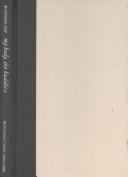
ISBN: 081957452X 9780819574527 9780819563286 0819563285 0819564362 0819563285 9780819564368 Year: 2000 Publisher: Hanover, N.H. : University Press of New England : Wesleyan University Press,
Abstract | Keywords | Export | Availability | Bookmark
 Loading...
Loading...Choose an application
- Reference Manager
- EndNote
- RefWorks (Direct export to RefWorks)
A premiere choreographer's compelling argument for the agency of the body in creative processes.
Choreography. --- Human body (Philosophy) --- Modern dance. --- Dance --- Body, Human (Philosophy) --- Philosophy --- Interpretive dancing --- Modern dancing
Book
ISBN: 1282437380 9786612437380 0300151829 9780300151824 0300142226 9780300142228 9780300142228 9781282437388 6612437383 Year: 2008 Publisher: New Haven, CT : Yale University Press,
Abstract | Keywords | Export | Availability | Bookmark
 Loading...
Loading...Choose an application
- Reference Manager
- EndNote
- RefWorks (Direct export to RefWorks)
In this pathbreaking book, one of Britain's most eloquent and original thinkers writes about the head, what happens in it, and how it is and is not connected to our sense of identity and consciousness. Blending science, philosophy, and humor, Raymond Tallis examines the extraordinarily complex relationship we have with our heads. His aim, as he says, "is to turn readers into astonished tourists of the piece of the world that is closest to them, so they never again take for granted the head that looks at them from the mirror." Readers will delight that this is precisely what he accomplishes. The voyage begins with a meditation on the self-portrait of a mirror image, followed by a consideration of the head's various secretions. Tallis contemplates the air we exhale; the subtle meanings of nods, winks, and smiles; the mysteries of hearing, taste, and smell. He discusses the metaphysics of the gaze, the meaning of kissing, and the processes by which the head comes to understand the world. Along the way he offers intriguing digressions on such notions as "having" and "using" one's head, and enjoying and suffering it. Tallis concludes with his thoughts on the very thing the reader's head has been doing throughout the book: thinking.
Head --- Human body (Philosophy) --- Body, Human (Philosophy) --- Philosophy --- Figure drawing --- Skull --- Anatomy. --- Philosophy.
Book
ISBN: 3110407388 3110407477 9783110407389 9783110407396 3110407396 3110407310 9783110407310 3110407396 9783110407471 3110407310 9783110407310 Year: 2015 Publisher: Berlin : De Gruyter Oldenbourg,
Abstract | Keywords | Export | Availability | Bookmark
 Loading...
Loading...Choose an application
- Reference Manager
- EndNote
- RefWorks (Direct export to RefWorks)
The body is at the same time a place where we express duration and/or discontinuity in history, a witness of radical social changes, and a factor of stabilization, but also of the transformation of human life - and therefore an eminent challenge for every human being. This book will contribute in a decisively interdisciplinary and cross-cultural way to a better understanding of the place, role, and connection of the body within social, political, and cultural shifts.
Human body (Philosophy) --- Body, Human (Philosophy) --- Philosophy --- 1550: Hardcover, Softcover / Geschichte --- Fachpublikum/ Wissenschaft --- SOC002010
Multi
Abstract | Keywords | Export | Availability | Bookmark
 Loading...
Loading...Choose an application
- Reference Manager
- EndNote
- RefWorks (Direct export to RefWorks)
"Journal of Embodied Research is the first peer-reviewed, open access, academic journal to focus specifically on the innovation and dissemination of embodied knowledge through the medium of video. With an editorial advisory board drawn from across the arts and humanities, it aims to pioneer the scholarly video article as a new form supporting development of diverse embodied research projects." -- Provided by publisher.
Human body (Philosophy) --- Body, Human (Philosophy) --- Philosophy --- embodied knowledge --- video --- arts practice --- cultural studies --- performance --- Corps humain (Philosophie)
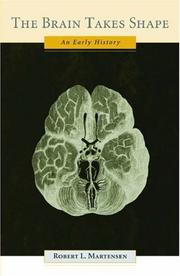
ISBN: 1280837616 0198034601 1429431059 9781429431057 9780198034605 9781280837616 0195151720 9780195151725 0197705820 Year: 2004 Publisher: Oxford ; New York : Oxford University Press,
Abstract | Keywords | Export | Availability | Bookmark
 Loading...
Loading...Choose an application
- Reference Manager
- EndNote
- RefWorks (Direct export to RefWorks)
Tells the story of how long-standing notions about the body as dominated by spirit-like humors were transformed into scientific descriptions of its solid tissues. This book shows how debates over investigative methods and models of body order influence biomedicine and the broader culture.
Medicine --- Human body (Philosophy) --- Health Workforce --- Body, Human (Philosophy) --- Philosophy --- Philosophy. --- History --- Philosophy, Medical --- History of Medicine, 17th Cent. --- history.
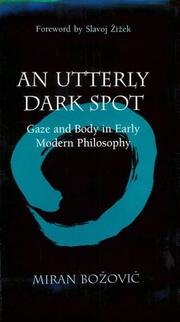
ISBN: 128263884X 9786612638848 0472023195 9780472023196 047211140X 9781282638846 6612638842 9780472111404 Year: 2000 Publisher: Ann Arbor : University of Michigan Press,
Abstract | Keywords | Export | Availability | Bookmark
 Loading...
Loading...Choose an application
- Reference Manager
- EndNote
- RefWorks (Direct export to RefWorks)
Two concepts of special interest to contemporary theorists--the gaze and the body--approached in a fresh and fascinating way.
Book
ISBN: 128258846X 9786612588464 1443820563 9781443820561 9781443819848 1443819840 Year: 2010 Publisher: Newcastle upon Tyne : Cambridge Scholars Pub.,
Abstract | Keywords | Export | Availability | Bookmark
 Loading...
Loading...Choose an application
- Reference Manager
- EndNote
- RefWorks (Direct export to RefWorks)
A philosophical inquiry into politics, embodiment and religion takes us straight to some of contemporary culture's most notorious issues: suicide bombing, the veiled and the exposed body, and present-day biopolitics. Interpretations of the body have alway
Human body (Philosophy) --- Human body --- Body, Human (in religion, folk-lore, etc.) --- Body, Human (Philosophy) --- Philosophy --- Religious aspects.
Book
ISBN: 0804792801 9780804792806 9780804789028 0804789029 9780804792769 0804792763 Year: 2020 Publisher: Stanford, CA : Stanford University Press,
Abstract | Keywords | Export | Availability | Bookmark
 Loading...
Loading...Choose an application
- Reference Manager
- EndNote
- RefWorks (Direct export to RefWorks)
By using religion to get at the core concepts of Michel Foucault's thinking, this book offers a strong alternative to the way that the philosopher's work is read across the humanities. Foucault was famously interested in Christianity as both the rival to ancient ethics and the parent of modern discipline and was always alert to the hypocrisy and the violence in churches. Yet many readers have ignored how central religion is to his thought, particularly with regard to human bodies and how they are shaped. The point is not to turn Foucault into some sort of believer or to extract from him a fixed thesis about religion as such. Rather, it is to see how Foucault engages religious rhetoric page after page—even when religion is not his main topic. When readers follow his allusions, they can see why he finds in religion not only an object of critique, but a perennial provocation to think about how speech works on bodies—and how bodies resist. Arguing that Foucault conducts experiments in writing to frustrate academic expectations about history and theory, Mark Jordan gives equal weight to the performative and theatrical aspects of Foucault's writing or lecturing. How does Foucault stage possibilities of self-transformation? How are his books or lectures akin to the rituals and liturgies that he dissects in them? Convulsing Bodies follows its own game of hide-and-seek with the agents of totalizing systems (not least in the academy) and gives us a Foucault who plays with his audiences as he plays for them—or teaches them.
| Listing 1 - 10 of 65 | << page >> |
Sort by
|

 Search
Search Feedback
Feedback About UniCat
About UniCat  Help
Help News
News